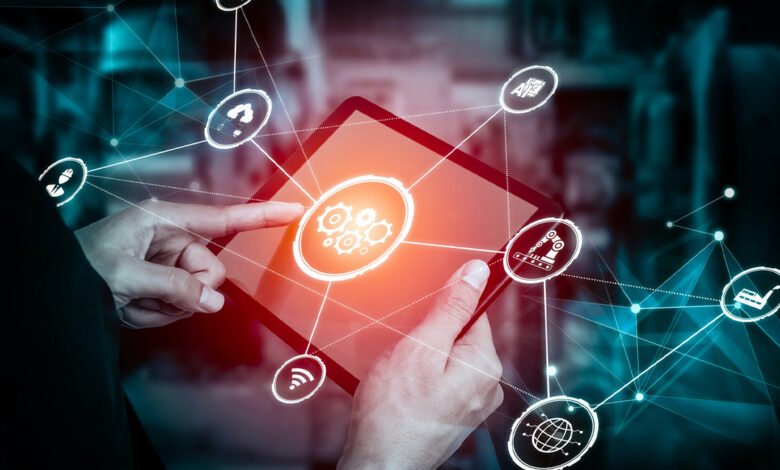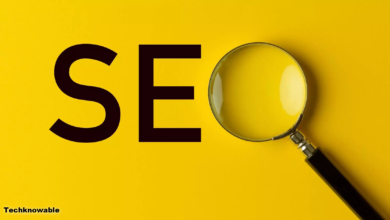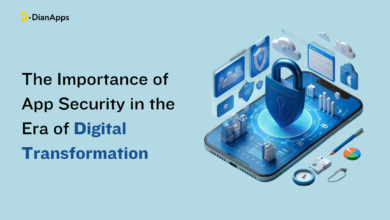IoT Innovations in 2023: Transforming Industries and Simplifying Lives

The rapid advancement of technology has paved the way for innovative solutions in various industries. One such technology that has been gaining significant attention and transforming the way we live and work is the Internet of Things (IoT). In 2023, IoT is set to revolutionize industries by connecting devices, collecting and analyzing data, and enabling smart decision-making. This article explores the IoT innovations that are expected to make a significant impact in 2023, reshaping industries and simplifying lives.
The Internet of Things (IoT) refers to the network of interconnected devices embedded with sensors, software, and connectivity, allowing them to exchange data and perform intelligent actions. These devices can range from everyday objects such as household appliances to complex machinery used in industries. IoT has the potential to bring about a fundamental shift in how we interact with technology and how industries operate.
Read more: Why IoT is the Key to Unlocking Efficiency in Your Business Operations in 2023
Definition of IoT

IoT encompasses a vast ecosystem of connected devices, sensors, and platforms that enable the exchange and analysis of data. The concept revolves around the idea of connecting physical objects to the internet, enabling them to communicate, share information, and perform tasks autonomously. By leveraging this interconnectedness, IoT opens up endless possibilities for innovation and efficiency across various sectors.
Importance of IoT in 2023
As we enter 2023, the importance of IoT becomes more evident than ever before. The convergence of technology and connectivity has enabled IoT to transform industries, bringing numerous benefits and opportunities. Some key reasons why IoT is gaining traction include:
- Enhanced productivity: IoT enables automation, real-time data analysis, and intelligent decision-making, leading to increased efficiency and productivity in industries.
- Improved safety and security: IoT systems can monitor and manage critical infrastructure, detect anomalies, and provide timely alerts, thus enhancing safety and security measures.
- Cost savings: IoT-driven automation and optimization lead to cost reductions in energy consumption, maintenance, and operational inefficiencies.
- Enhanced customer experience: IoT facilitates personalized services, anticipates customer needs, and enables seamless interactions, leading to an improved customer experience.
With these advantages in mind, let’s explore some of the exciting IoT innovations that are set to make a significant impact in 2023 across various industries.
IoT Innovations in Healthcare
Remote patient monitoring
IoT enables remote patient monitoring, allowing healthcare providers to gather real-time data on patients’ health conditions outside of traditional healthcare settings. Wearable devices equipped with sensors can track vital signs, collect data, and transmit it to healthcare professionals for analysis. This innovation not only enhances patient care but also reduces the burden on healthcare facilities.
Smart hospitals
IoT technology is revolutionizing hospitals by creating smart environments that improve patient care and operational efficiency. Smart hospital systems can monitor patients, track medical equipment, automate workflows, and enhance communication among healthcare professionals, ultimately leading to better outcomes and resource optimization.
Wearable devices
Wearable devices, such as smartwatches and fitness trackers, have become increasingly popular in recent years. These devices connect to the internet and collect data on users’ physical activities, heart rate, sleep patterns, and more. In 2023, wearable devices are expected to evolve further, providing more accurate and personalized health insights.
IoT Innovations in Transportation
Connected vehicles
Connected vehicles are becoming a reality, thanks to IoT advancements. Cars equipped with IoT technology can communicate with each other, traffic infrastructure, and external systems to enhance safety, optimize traffic flow, and provide advanced driver assistance features. In 2023, we can expect to see increased adoption of connected vehicles and further integration with smart transportation systems.
Intelligent traffic management
IoT-powered traffic management systems enable real-time monitoring and analysis of traffic conditions. By gathering data from various sources, including sensors, cameras, and navigation systems, these systems can optimize traffic flow, reduce congestion, and improve overall transportation efficiency.
Fleet management systems
IoT-based fleet management systems provide real-time tracking and monitoring of vehicles, enabling efficient fleet operations, route optimization, and preventive maintenance. In 2023, we can anticipate more sophisticated fleet management solutions, leveraging IoT data to enhance logistics and reduce costs.
IoT Innovations in Agriculture
Precision farming
Precision farming utilizes IoT sensors, drones, and data analytics to monitor and optimize agricultural practices. Farmers can collect data on soil moisture, temperature, crop health, and other parameters, allowing them to make informed decisions about irrigation, fertilization, and pest control. This results in increased crop yields, resource efficiency, and sustainability.
Smart irrigation systems
IoT-based smart irrigation systems enable precise control of water usage in agriculture. By integrating weather data, soil moisture sensors, and plant requirements, these systems can automatically adjust irrigation schedules and optimize water usage, leading to water conservation and improved crop health.
Livestock monitoring
IoT solutions are also transforming livestock management by enabling real-time monitoring of animals’ health, behavior, and location. Wearable sensors and GPS tracking devices can provide insights into livestock well-being, enabling early detection of diseases, improving breeding practices, and optimizing feeding patterns.
IoT Innovations in Smart Cities
Smart energy management
IoT plays a crucial role in smart energy management by facilitating real-time monitoring, optimization, and control of energy consumption in buildings and urban infrastructure. Connected systems can collect data on energy usage, identify patterns, and enable intelligent energy-saving measures, contributing to sustainable and efficient cities.
Waste management
IoT-based waste management systems utilize sensors and smart bins to optimize waste collection and disposal. These systems can monitor fill levels, optimize collection routes, and enable timely maintenance, leading to cost savings, reduced environmental impact, and cleaner cities.
Public safety and surveillance
IoT-enabled surveillance systems enhance public safety by integrating cameras, sensors, and analytics. Real-time monitoring, facial recognition, and predictive analytics can help detect and prevent crimes, manage traffic flow, and improve emergency response, making cities safer and more secure.
IoT Innovations in Manufacturing
Industrial automation
IoT enables the automation of manufacturing processes, leading to increased productivity, improved quality control, and reduced downtime. Connected sensors, actuators, and machines can communicate and collaborate, optimizing production lines and enabling predictive maintenance, ultimately resulting in cost savings and operational excellence.
Predictive maintenance
IoT-based predictive maintenance systems leverage real-time data and machine learning algorithms to identify potential equipment failures before they occur. By monitoring equipment performance, analyzing sensor data, and detecting anomalies, these systems enable timely maintenance, reducing unplanned downtime and extending the lifespan of machinery.
Supply chain optimization
IoT provides end-to-end visibility and transparency in the supply chain. By tracking assets, inventory, and shipments in real-time, IoT-powered supply chain management systems enable accurate demand forecasting, efficient inventory management, and streamlined logistics, resulting in cost savings and improved customer satisfaction.
IoT Innovations in Retail
Smart shelves
IoT-enabled smart shelves utilize sensors and RFID technology to monitor product inventory levels, track expiration dates, and analyze customer behavior. This enables retailers to optimize shelf replenishment, reduce waste, and personalize marketing strategies based on real-time data.
Personalized marketing
IoT data allows retailers to gather insights into customers’ preferences, behaviors, and purchase history. By leveraging this data, retailers can deliver personalized marketing messages, tailored offers, and recommendations, enhancing customer engagement and driving sales.
Inventory management
IoT-based inventory management systems automate stock tracking, enabling retailers to have real-time visibility into their inventory levels, stockouts, and replenishment needs. This leads to efficient inventory management, reduced carrying costs, and improved supply chain efficiency.
Challenges and Concerns in IoT
While IoT brings significant benefits, it also presents challenges and concerns that need to be addressed. Some of the key challenges include:
- Security risks: With billions of connected devices, ensuring data security and privacy becomes crucial. IoT networks can be vulnerable to cyberattacks, and securing them requires robust encryption, authentication, and access control mechanisms.
- Interoperability: IoT devices and platforms from different manufacturers may have compatibility issues, hindering seamless integration and data exchange. Standards and protocols need to be established to ensure interoperability.
- Data management: The vast amount of data generated by IoT devices poses challenges in terms of storage, processing, and analysis. Efficient data management and analytics frameworks are necessary to derive valuable insights from IoT-generated data.
- Ethical considerations: IoT raises ethical concerns, such as data ownership, consent, and potential misuse of personal information. Addressing these concerns requires clear policies and regulations to protect individuals’ rights and ensure responsible IoT deployments.
Read more: Why IoT is the Key to Unlocking Efficiency in Your Business Operations in 2023
Conclusion
As we look towards the future, the Internet of Things (IoT) continues to drive innovation and transformation across industries. In 2023, we can expect to witness remarkable IoT innovations that will reshape healthcare, transportation, agriculture, smart cities, manufacturing, and retail. These innovations have the potential to improve productivity, enhance safety, optimize resource utilization, and deliver personalized experiences. However, it’s essential to address challenges related to security, interoperability, data management, and ethics to fully harness the potential of IoT and create a connected world that truly simplifies our lives.
FAQs
What is the Internet of Things (IoT)?
The Internet of Things (IoT) refers to the network of interconnected devices embedded with sensors, software, and connectivity, allowing them to exchange data and perform intelligent actions.
How does IoT benefit the healthcare industry?
IoT innovations in healthcare enable remote patient monitoring, smart hospitals, and wearable devices, leading to improved patient care, resource optimization, and better health outcomes.
What are some IoT innovations in smart cities?
IoT-powered smart cities leverage technology for smart energy management, waste management, public safety, and surveillance, contributing to sustainability and enhanced quality of life.
How does IoT impact the manufacturing sector?
IoT innovations in manufacturing enable industrial automation, predictive maintenance, and supply chain optimization, resulting in increased productivity, cost savings, and operational efficiency.
What challenges are associated with IoT?
Key challenges in IoT include security risks, interoperability issues, data management complexities, and ethical considerations. Addressing these challenges is crucial for the successful implementation of IoT solutions.











